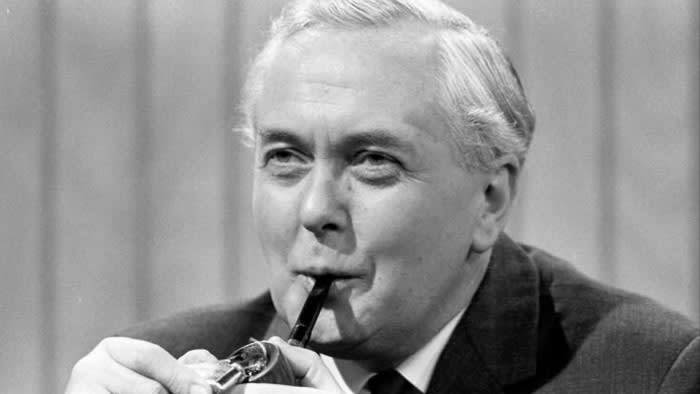
Unlock the Editor’s Digest for free
Roula Khalaf, Editor of the FT, selects her favourite stories in this weekly newsletter.
The writer is author of ‘The Impossible Office? A History of the British Prime Minister’
Another week, another horrible challenge for the prime minister. Rishi Sunak has come under mounting pressure over party donations at the very moment that the post-Budget bounce in the polls failed to transpire. His remaining time in Downing Street promises little more than disputes, resignations, and tears.
Frank Hester, the Conservative party donor who has already given an unprecedented £10mn to the party — including a gift worth nearly £16,000 of a helicopter journey to the prime minister — was revealed on Thursday to have given an extra £5mn cash donation yet to be declared, taking the total to over £15mn.
Outspending Labour in the approaching election would be a huge advantage for the Conservatives. Last November, the government almost doubled the spending cap for each nationwide party from £19.5mn to £35mn. And Hester is the party’s biggest ever cash donor — a friend to treasure indeed.
Except for his inconvenient, alleged views on veteran MP Diane Abbott, which surfaced last week. In 2019 he remarked that she made him “want to hate all Black women”. An apology for his “rude” comments, and his assertion that his words “had nothing to do with her gender nor colour of skin” did nothing to quell the anger. Neither did Sunak (eventually) describing the comments as “racist” and “wrong”.
Hester remarked that Abbott should “be shot”: in the wake of the two murders of MPs Jo Cox and David Amess, can the prime minister of the day avoid belatedly taking a stand?
Opposition parties, predictably, have called for Hester’s money to be returned. A money scandal, especially on the heels of the row over the profits made by former lingerie boss Baroness Mone and her husband via Covid-era PPE contracts, is the last thing Sunak wanted.
But in the absence of state funding for political parties in elections, party leaders must rely upon individual and corporate donations to fight a campaign. When embarrassments arise from these connections, they are trapped. If they give way, badly needed funds are not all they lose — loss of face makes a leader appear weak. If they cling on, they often cannot avoid an eventual U-turn — which also saps credibility.
None of this is new. In 1918 Maundy Gregory became an intermediary between affluent men who wanted honours and Prime Minister Lloyd George, who needed money. Up to £2mn was raised — equivalent to over £90mn today. The outcry over corruption was such that it brought down Lloyd George’s coalition in 1922. It also led to new legislation, the Honours (Prevention of Abuses) Act of 1925, intended to curb the blatant sale of honours — under which Gregory was later convicted.
Harold Wilson caused a widespread stink over his resignation honours list in 1976. Wilson ennobled as a life peer his old friend, Joseph Kagan, who had already received a knighthood in 1970, and made large financial contributions to Wilson’s trust. Wilson’s reputation was permanently tarnished as a result of his connections with a man who was convicted of fraud.
Tony Blair’s dealings with Formula One supremo Bernie Ecclestone erupted into a scandal early in his premiership. Ecclestone had given £1mn to the Labour party before the 1997 general election. The party had promised to eradicate tobacco advertising in the UK, but then announced that Formula One would be exempt from sponsorship bans. Following public outrage and intense media scrutiny, the donation was returned.
Boris Johnson’s time as Conservative leader and prime minister will be coloured by his resignation honours, which recommended peerages for those who had donated tens of thousands to the party.
So scandals arising from donors are far from unprecedented. But are politicians learning the right lessons? Apparently not. Far from curtailing the influence of the affluent through stricter spending limits, the UK government seems intent on emulating the US in assuring select, wealthy individuals the potential for secret, almost untrammelled influence within the corridors of power.
Even if donors don’t run houses of ill repute (like Maundy Gregory), have shady business careers (like Lord Kagan), or make racist remarks (like Hester), it’s still foolish for the system to allow anyone to be a disproportionate political funder. The main effect is to undermine faith in our democracy. No one gives in politics unless it is to secure influence.
Trust is the principle at stake. Even if Sunak gives this particular donation back, tighter rules are urgently required to restrict both individual and corporate gifts. And the link between donations and honours must be broken. It seems incredible that 100 years after the Prevention of Abuses Act, the problem is still rife.
Read More: World News | Entertainment News | Celeb News
FT










